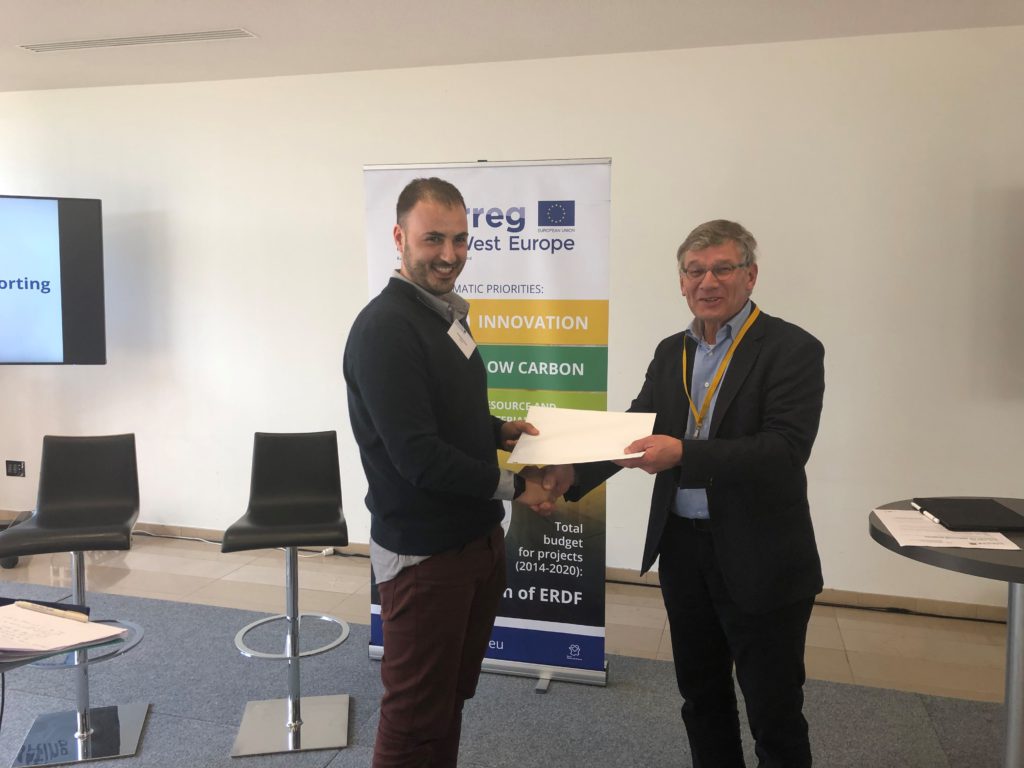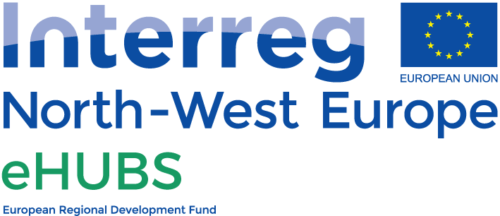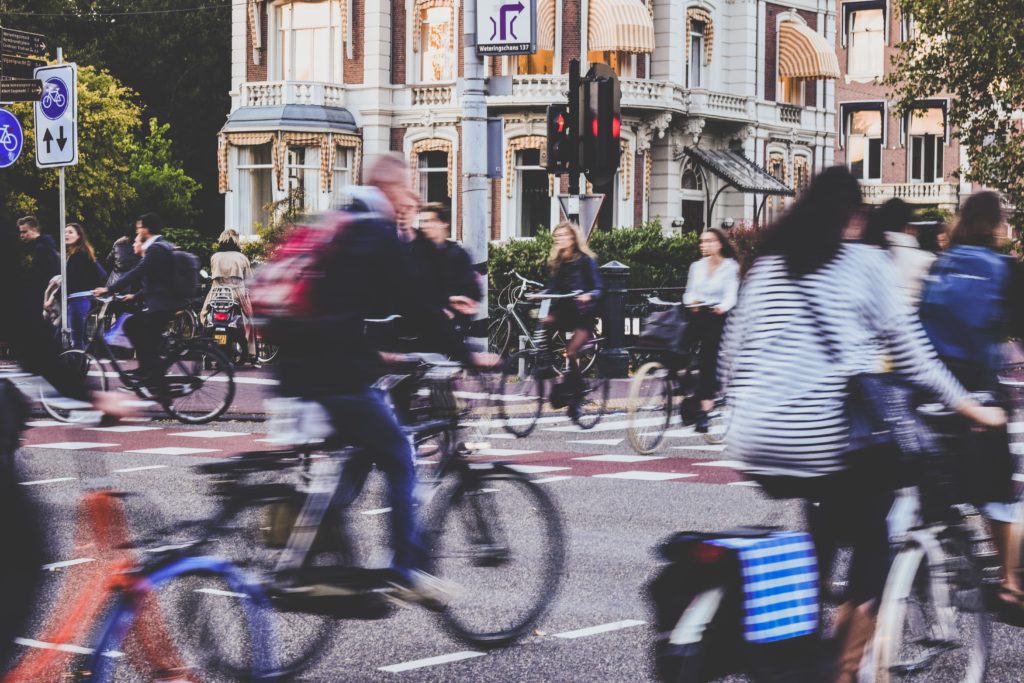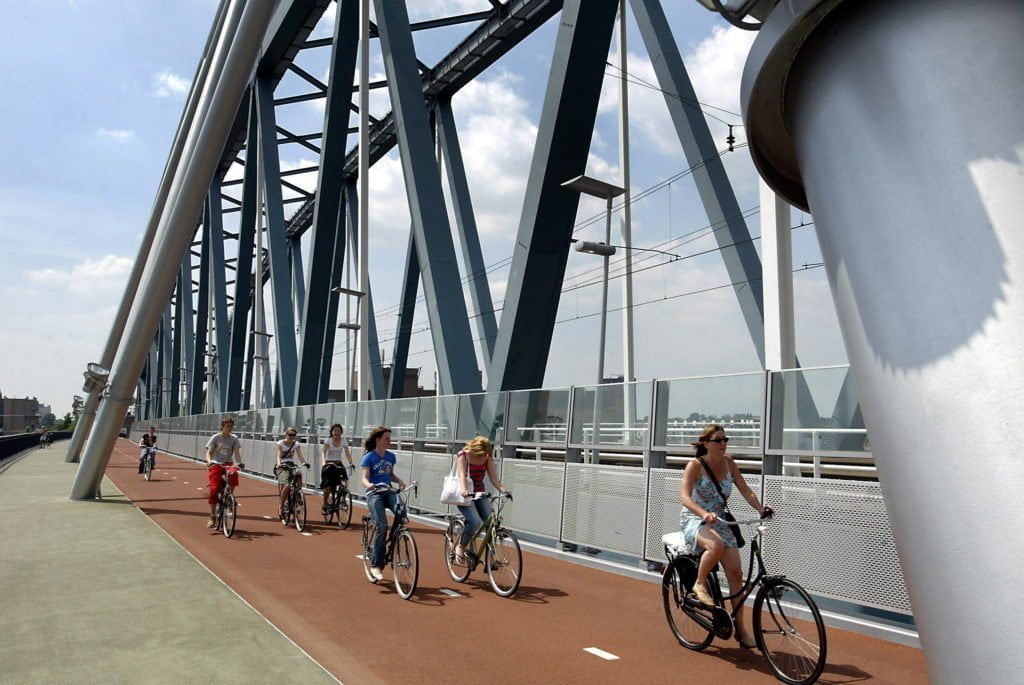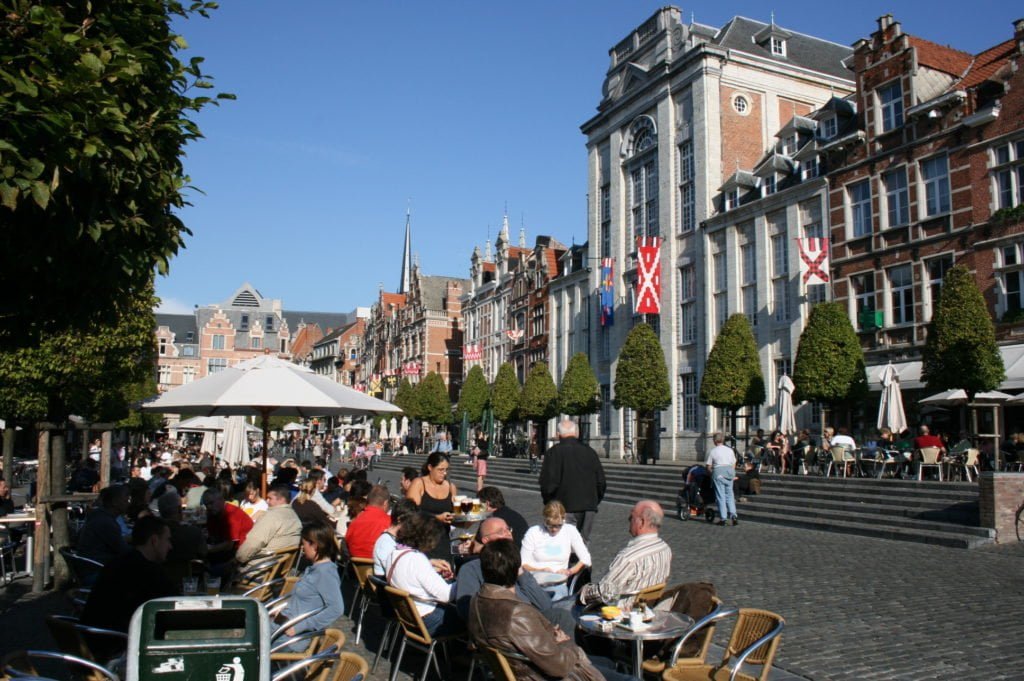The eHUBS project kicks off
The EU project eHUBS, co-funded by European Commission’s Interreg North-West Europe Programme, kicked off its activities at a partner meeting on the 10th of April 2019 in Lille. This ambitious project wants to increase the uptake of shared electric mobility solutions by end-users, through the deployment and promotion of e-Mobility hubs.
e-Mobility hubs, shortly eHUBS, are on-street locations where citizens can choose from different sustainable electric transport options for shared use. eHUBS bring together e-bikes, e-cargo bikes, e-scooters and/or e-cars, offering the user a wide range of options to choose from, based on his or her needs at a given moment. They can be small and located in residential areas, with just one or two parking spots, or bigger and positioned close to stations and major public transport interchanges. With a high-quality and diverse offer of shared electric mobility services, the need for owning a private car in the city disappears. This will result in cleaner, more livable and pleasant cities.
"It is important for the health of our citizens to start moving around differently in our city. There is no space left for more car traffic, while the population continues to increase. To remain accessible while safeguarding the quality of life in our cities, we need to travel in a more sustainable way. eHubs across our neighbourhoods can encourage and facilitate this change. I’m proud Nijmegen can serve as an inspiring example to other cities.” Harriët Tiemens, Deputy Mayor of Nijmegen
The eHUBS implementation approach will differ according to the size and needs of the respective cities and it aims at developing knowledge, best practices and a blueprint that would lead to replication of the experiences in other cities and regions. A large-scale uptake would not only contribute to reducing CO2 emissions, air pollution and congestion in cities and to improving the quality of public space in the cities, it would also create a growing market for commercial shared e-mobility providers, provided they are aligned with local policy goals.
To find innovative solutions to the challenges of slow user adoption and scalability, eHUBS draws on a wide range of multidisciplinary expertise. The 15-partner consortium, led by the City of Amsterdam, will run until 2021 and is composed of European cities, international organisations, shared e-mobility service providers, and universities: City of Amsterdam, POLIS Network, Taxistop asbl, Autodelen.net, Bayern Innovativ, Cargoroo, URBEE, Arnhem-Nijmegen, Transport for Greater Manchester, City of Leuven, TU Delft, Newcastle University, City of Dreux, City of Kempten (Allgäu), University of Antwerp.
At the project’s kick-off meeting, partners expressed their excitement about the project and its ambition to develop new tools and concepts.
“The eHUBS project provides a great opportunity to increase the shared and electric mobility, which are both important aspects for a sustainable future.” Thomas Kiechle, Mayor of Kempten (Allgäu)
“Dedicated places on the street where people can experiment different means of shared sustainable mobility is a crucial step towards the adaptation of shared mobility services.” Fleur Schraven, URBEE
For more information, please visit the website of eHUBS: http://www.nweurope.eu/projects/project-search/ehubs-smart-shared-green-mobility-hubs/
